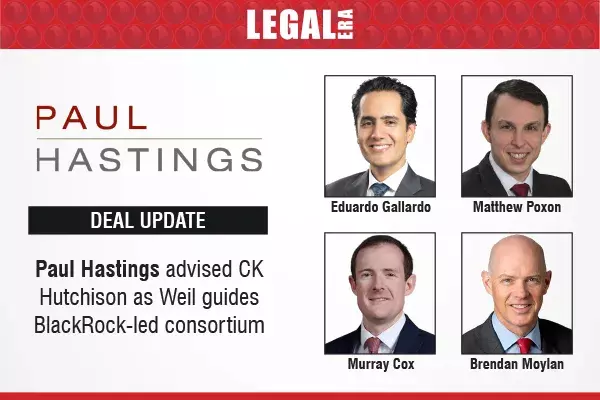Pinsent Masons secure a major win for Google
UK Supreme Court rejects £3bn privacy claim by consumer champion Which?;

Pinsent Masons secure a major win for Google UK Supreme Court rejects £3bn privacy claim by consumer champion Which? International law firm Pinsent Masons has secured a major win for the technology giant Google. The UK Supreme Court has rejected a class action claim brought by Richard Lloyd, former executive director of Which?, a consumer rights platform. Lloyd had sought billions...
Pinsent Masons secure a major win for Google
UK Supreme Court rejects £3bn privacy claim by consumer champion Which?
International law firm Pinsent Masons has secured a major win for the technology giant Google. The UK Supreme Court has rejected a class action claim brought by Richard Lloyd, former executive director of Which?, a consumer rights platform.
Lloyd had sought billions of pounds in damages on behalf of millions of people on the basis of privacy harms. He acted as the lead claimant for the class, which was represented by Milberg London and backed by third-party litigation funder Therium.
Lloyd's team had claimed that £750 in damages be awarded to each of a proposed class of four million Apple iPhone users in England and Wales. It argued that Google secretly tracked their Internet activity between 2011 and 2012. They claimed that it had then used the data to enable advertisers to target the users based on their browsing history.
But the court rejected Lloyd's argument that the loss of control of personal data has an intrinsic value capable of compensation. Justice of the Supreme Court, Sir George Leggatt pronounced that each claimant must establish they had personally suffered some form of material damage, such as financial loss or mental distress, resulting from the alleged breach of the Data Protection Act 1998, which was in effect at the time of Google's alleged wrongdoing.
It also held that it was necessary to prove what unlawful processing by Google of personal data relating to a certain individual had occurred.
Lloyd, a veteran consumer rights campaigner, had been pursuing the case against Google for several years. The case has been described as one of the most significant in the UK's recent legal history.
Pinsent's Telecommunications, Media and Technology (TMT) disputes partner David Barker, who led the team acting for Google, said, "Lord Leggatt's comments on the availability of damages for loss of control may lead to a more general dampening of the claims market in this space."
Several other representative actions based on alleged data protection breaches have been on hold pending the Supreme Court's judgment in this case, including claims against TikTok, Facebook and Marriott Hotels.
Meanwhile, RPC, whose client tech the UK was an intervening party in the hearing, said that the rejection of the concept of 'loss of control' damages and the requirement that individuals must prove they have suffered damage 'means that a representative action is unlikely to be a financially viable option for legal advisers and funders in most cases.'
RPC partner and head of IP and tech, David Cran, said the court's judgment would be warmly welcomed by data controllers who were exposed to very significant potential liability arising from data claims, even if no specific damage was shown to have been suffered by any individual.
He added that the judgment was "likely to have a very significant impact on the UK industry across different sectors that handle customer data, as well as the legal market, including claimant firms, litigation funders and After the Event (ATE) insurers."
The UK has not enacted legislation for class actions outside the field of competition law and Lloyd had brought his claim using a procedural rule for representative actions, CPR19.6, which historically has been used for group litigation orders sought by claimants with the same claim such as tenants seeking to challenge service charges against their landlord.
David Greene, senior partner and head of class action and finance litigation at Edwin Coe, said the lawyers had been waiting to see if the Supreme Court would open up a new process for class actions based upon a reinterpretation of this old procedural rule.
On behalf of the London Solicitors Litigation Association, Coe stated, "This is no doubt a great win for Google and a disappointment not just to Lloyd, but to all those seeking to pursue data breach claims on a similar basis."
Herbert Smith Freehills' disputes partner Julian Copeman added, "While this decision means that the threat of 'US style' opt-out litigation in data claims has receded, group litigation is here to stay. There is nothing in this decision that means such claims will not be brought up as 'opt in' group claims."





